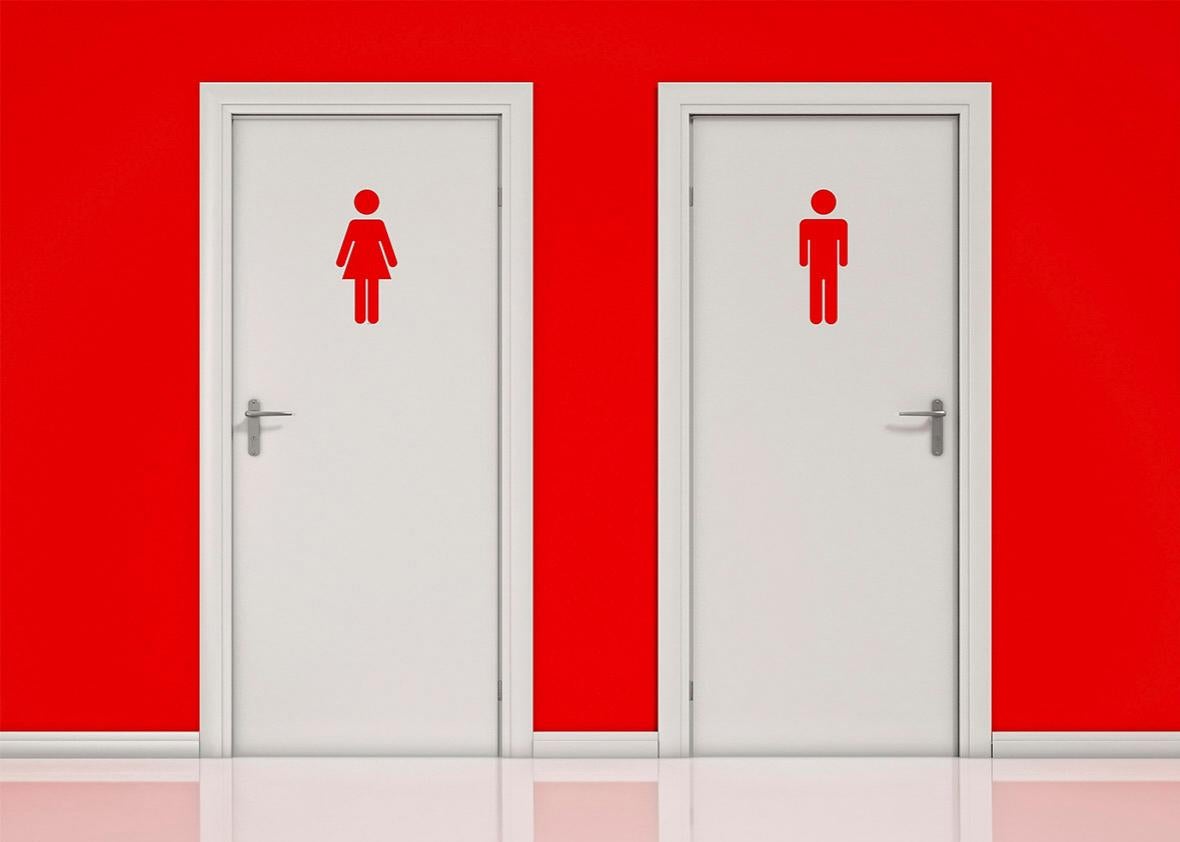In the ongoing national debate over which public bathrooms transgender people should be able to use, both sides have asserted that individual privacy is at stake. Which position is correct?
Those who would bar transgender individuals from using the restroom that corresponds with their gender identity and outward gender expression have argued that sharing a restroom with a transgender person violates an expectation of privacy.
For example, in the lawsuit filed Monday defending North Carolina’s transgender bathroom ban, Gov. Pat McCrory argues that HB2 represents a “common sense privacy policy.” Indeed, the full name of HB2 is the Public Facilities Privacy & Security Act. Similarly, in Washington state, a group called Just Want Privacy is gathering support for an initiative that would repeal existing legal protections for transgender individuals. According to the group, if transgender people use bathrooms corresponding with their gender identity, people “may be exposed to opposite sex anatomy.” In California, a group styled Privacy for All attempted (and failed) to garner enough signatures in support of an initiative they called the Personal Privacy Protection Act, which would have required individuals to use government building bathrooms in accordance with their “biological sex” as assigned at birth. According to the group, a woman “has a reasonable expectation [of privacy] that she will not encounter men in the restroom.”
While the details of the purported privacy violations caused by the presence of transgender individuals are rarely spelled out completely, rely on innuendo, and inaccurately and hurtfully label transgender women as “men,” at base they seem predicated on worry that someone born with different genitalia than you may see your genitalia or that you may see genitalia different than your own. As a matter of logistics and logic, these concerns are, to borrow from Justice Antonin Scalia, applesauce.
First, bathrooms—particularly women’s bathrooms—are designed to maintain personal privacy regardless of who is in the neighboring stall. Even in men’s restrooms there are stalls available for those especially worried about privacy. In other words, if you have a concern about who sees your genitalia, or if you prefer not to see anyone else’s, just use a stall and avoid the urinals. And in the locker room context, practical solutions such as a privacy curtain can be easily and affordably installed to provide greater privacy to anyone who desires it.
Second, to the extent there is concern over someone’s prurient interest, those supporting bathroom bans completely overlook issues of sexual orientation. Transgender people—like cisgender people—can be straight, gay, or bi. That’s to say, a straight transgender woman is probably as uninterested in another woman’s groin as any other straight woman.
Our gender does not dictate our sexuality, and just as we obviously permit gay and bisexual people to use public restrooms, so, too, should we permit transgender individuals. This very point was recently made by the 4th Circuit Court of Appeals when it reinstated a legal challenge to a public school’s exclusion of a transgender boy from the boys’ restrooms. More broadly, decorum and social norms have long dictated that people keep their eyes to themselves. Nothing about the presence of transgender people changes that.
Put simply, bathroom privacy and locker room privacy are not endangered by the presence and existence of transgender people.
On the other hand, the privacy interests of transgender individuals are quite real and deadly serious. As is explained in the lawsuit challenging North Carolina’s exclusionary bathroom bill, forcing transgender individuals to use a bathroom that does not correspond with their gender identity and outward gender expression outs that person as transgender each time they use the public restroom.
Of course, transgender people should feel no shame over their identity or their bodies—quite the opposite. As the Justice Department’s top civil rights attorney Vanita Gupta explained: transgender people belong just as they are.
But unfortunately, as much of the political discourse surrounding transgender bathroom access demonstrates, our society is rife with misunderstanding and, at times, animus toward transgender individuals. Transgender people are subject to high levels of violence, poverty, incarceration, and employment discrimination. And since comprehensive nondiscrimination protections for transgender people are lacking, maintaining privacy over one’s trans status may be critical to a range of activities from obtaining a job to keeping safe.
Moreover, because in order to be enforced bathroom bills seem to suggest that there needs to be some sort of evaluation of someone’s “biological sex,” they potentially subject all people to greater levels of scrutiny regarding our anatomy.
To the extent this debate is about privacy—and make no mistake, it is also about equality and tolerance—the scales tilt decidedly in favor of access for transgender individuals, not exclusion and marginalization.
